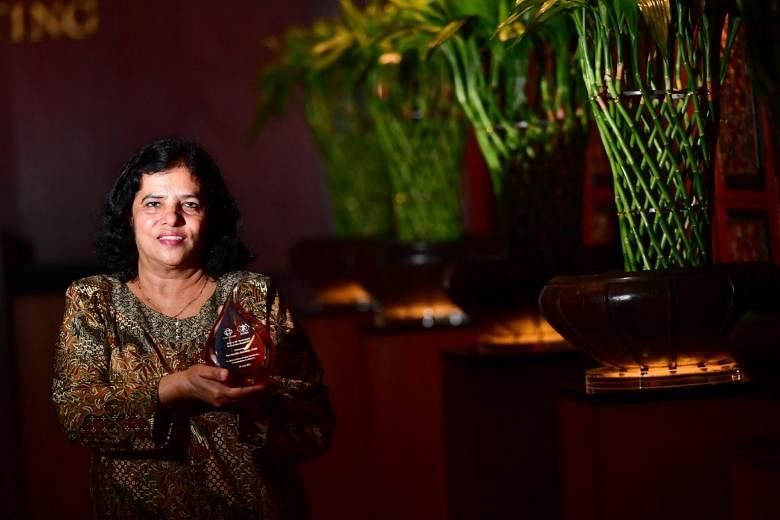SINGAPORE - Malays in Singapore have their own special version of Malay culture, which melds with the country's multiracial setting, and the community must put in greater effort to grow and preserve this unique culture and heritage, said Environment and Water Resources Minister Masagos Zulkifli on Sunday (July 30).
He made this call as he announced new plans for Malay grassroots groups under the People's Association (PA) to focus on building stronger bonds within the community, and between the community and other races.
"The love for our language and culture would be a strong pillar in preventing the external influences from changing our belief. These external influences operate in a different context in terms of its history, language and culture, from the Malays in this region," he said.
Mr Masagos was speaking at the at a gala dinner celebrating the 40th anniversary of the People's Association Malay Activity Executive Committees (MAEC), which organises cultural and social activities at the community centres and clubs.
In a speech in Malay, he spoke about how external influences have threatened to erode Singapore's Malay culture, noting that some local traditions have come under attack by foreign extremists.
He pointed to how they have labelled the Malay wedding practice of "persandingan", where the newly weds sit together on a dais, as having Hindu influences, and claimed that the Arab way of dressing is "more superior" to the local Baju Melayu.
"Extremists know they must first supplant our confidence in our identity, both in our religious practice and culture before they can replace it with one of their own," he said.
"We should be on guard against this insidious change. Failing to do so will result in the eventual rejection of our local understanding and teachings of Islam which is tolerant and embraces harmony. It will also lead to the erosion of our local Malay culture which has enriched our religion."
Speaking to reporters before the event, Mr Masagos cited the example of how radicals had sought to replace the local identity in Pakistan with one of "pan-Islamism".
As a result, he said, a strident and more exclusive doctrine has taken root, and "we don't want this to happen in Singapore.
He urged Singaporean Malays to be confident of their cultural and religious practices, saying it provides a "bulwark against the threat of incoming doctrines which are...very inimical to our multiracial society".
He added that the 97 MAECs and its coordinating body, the Malay Activity Executive Committees Council - better known by its acronym Mesra - can also combat this threat by helping to foster a sense of cohesion among the different races.
To achieve this, the MAECs, which were formed as Malay cultural groups in 1997 and now reach out to over 450,000 residents, will need to adopt a new strategy.
"Like a 'kampong' we need to get people out into common spaces, where people across all walks of life have the opportunity to interact and get to know one another. That is what we need to work towards to foster this strong sense of cohesion among the different communities in Singapore," he said to about 900 MAEC members and community partners.
As part of this effort, Mesra will also be running programmes in the upcoming Wisma Geylang Serai, a new civic centre in Paya Lebar that will be a hub for Malay heritage.
"Mesra will need to proactively take the lead in encouraging our community to integrate and reach out to the other races to help them understand our culture and community," said Mr Masagos, adding that along with these efforts, the majority race will also have to embrace minorities as part of an inclusive society.
He added that these efforts will complement that of Malay/Muslim self-help group Mendaki and the Islamic Religious Council of Singapore (Muis).
Deputy Prime Minister Teo Chee Hean, who also delivered a speech in Malay at the dinner, welcomed the plan by the Malay/Muslim community to "work more closely with all communities to build a more secure, cohesive multi-racial and multi-religious Singapore".
He noted that the community had made good progress, and highlighted efforts to reach out to youth and young professionals.
"Such efforts build resilience and self-confidence in the Malay community and will help build a pipeline of young leaders to take the community forward," said DPM Teo.
Madam Ayesha Abdullah, chair of the Pasir Ris East Community Centre MAEC, said encouraging young people to get involved in the grassroots was important because they have ideas on how to take the community forward.
"They can share with us and also teach us...we want their opinions," said the 61-year-old.
She was one of eight MAEC members that were given awards for volunteering for more than 20 years.



